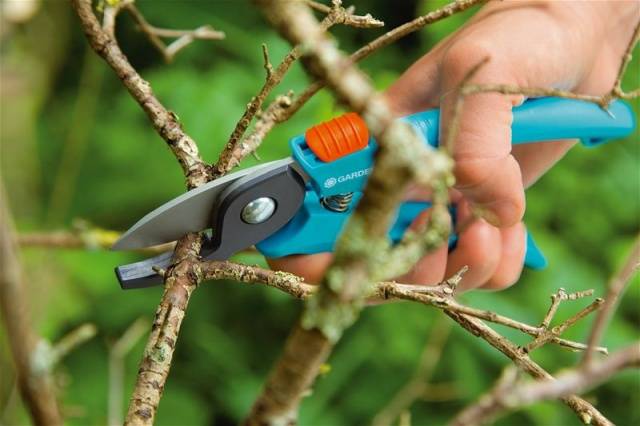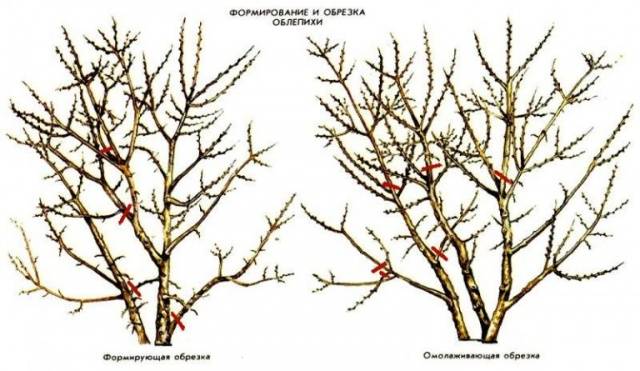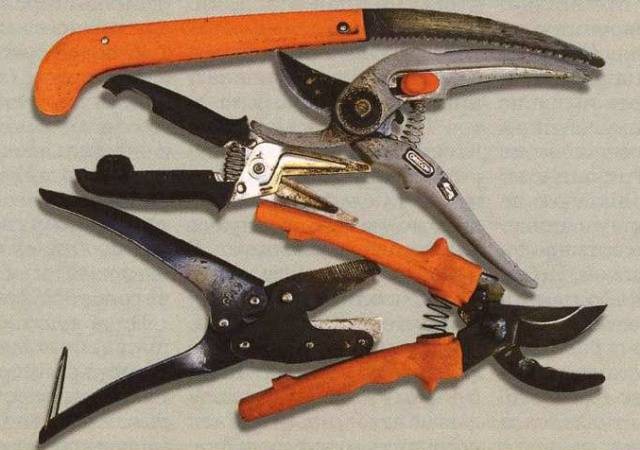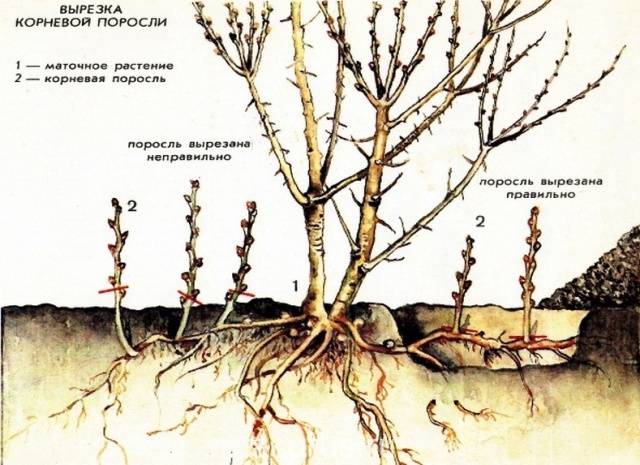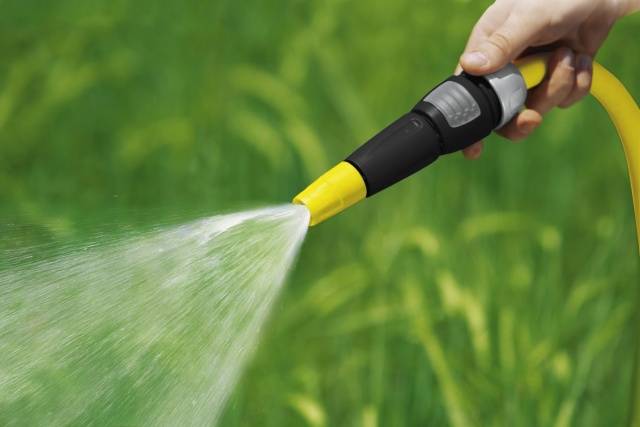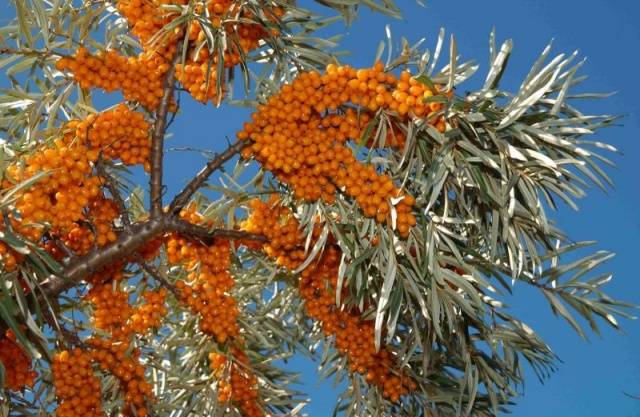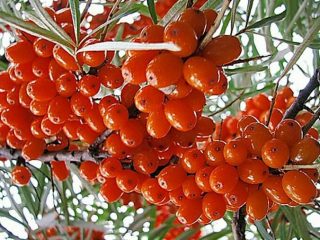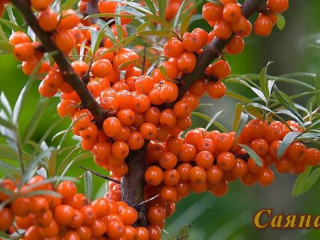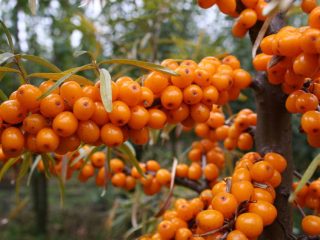Content
Pruning sea buckthorn is one of the necessary measures included in the complex of measures for the care of this shrub. This procedure allows you to significantly increase the yield of berries, to form a beautiful crown shape. In addition, pruning can significantly reduce the risk of contracting this shrub with fungal infections, as well as identify those at an early stage of development. This article describes how to prune sea buckthorn in spring in stages from a photo, how to carry out autumn pruning and what is needed for this.
Goals and objectives of pruning sea buckthorn
Sea buckthorn is a short perennial deciduous shrub. Pruning it is a procedure for removing part of the branches and shoots, which performs several functions and pursues the following goals:
- maintaining the health of the shrub;
- disease prevention;
- giving the plant a beautiful appearance;
- increasing or maintaining yields;
- life extension.
Each of these tasks has its own type of pruning, which is carried out according to a certain scheme at the right time. More on this below.
Types of pruning
There are quite a few types of sea buckthorn pruning. They depend not only on the goals set, but also on the time of year and the age of the bush.
purpose | Trim type |
Sea buckthorn crown formation | Formative |
Pruning diseased, damaged, dry branches | Sanitary |
Stimulating the growth of young healthy shoots | Rejuvenating |
Restoring a running hive | Restorative |
Maintaining the crown in good condition, thinning, lightening | Regulatory |
Artificial limitation of the number of berries to reduce the load on the shrub, improve their quality | Normalizing |
When to prune sea buckthorn: in spring or autumn
Sea buckthorn reacts painfully to pruning, so the timing of this procedure must be approached responsibly. It is believed that it is correct to prune sea buckthorn in the spring, before the start of the growing season. In the fall, only sanitary pruning is performed, removing broken, dry or diseased branches.
Despite this, many gardeners quite successfully prune later and even in the summer, explaining this by the fact that in the summer all the imperfections of the crown are better visible. Dried branches are much easier to see in summer than in early spring. There is no consensus on the timing of the pruning of sea buckthorn.
How to prune sea buckthorn in spring
The scheme for pruning sea buckthorn in the spring depends on the age of the shrub. More on this below. You need to prune sea buckthorn in the spring before the start of sap flow, at which time it is recommended to carry out sanitary pruning. This will rid the bush of dry and broken branches that have died during the winter. Formative pruning for young trees is also done at the same time.
Rejuvenating pruning will be required for a sea buckthorn tree or shrub when its age exceeds 6-7 years. In the process of rejuvenation, 1 to 3 large branches are removed, growing young shoots instead.
A diagram of how to prune sea buckthorn in spring is given in the figure below.
Timing of pruning sea buckthorn in the fall
In the fall, you can cut the sea buckthorn only for sanitary purposes.For this, a period of time is selected when the plant has completely thrown off the foliage, but the frost has not yet come. The scheme for pruning sea buckthorn in the fall is very simple. At this time, along with broken and dried branches, those on which there are traces of fungal diseases should be removed. It is very important to work carefully when trimming, all cuts and cuts must be made even and smooth.
Tools and materials
Pruning requires a garden pruner, a hand saw, and a garden knife. If the tree is tall, a delimber can be used. Sea buckthorn wood is quite fragile, so the quality of the tool must be very high. Before trimming, all cutting surfaces must be treated with a solution of copper sulfate. This will prevent the development of fungal infections.
Sea buckthorn juice quickly thickens in the air, enveloping the cut with a protective film. Therefore, garden pitch or other means may not be used. Nevertheless, experienced gardeners still recommend doing this as an additional guarantee against infection. Many garden putties contain copper sulfate, which is a good disinfectant.
How to properly prune sea buckthorn
An adult sea buckthorn tree can reach 5 m in height, this is not required in a garden. The optimal height of the bush will be at the level of the raised human hand. Female sea buckthorn plants are usually formed by bushes, male plants - by a low tree. If the plant is formed by one tree, one conductor and several skeletal branches are formed from the seedling. To form the stem, the strongest shoot is left, the rest are removed.
After the formation of a sea buckthorn or tree bush, formative pruning will be reduced to cutting out incorrectly growing, thickening and unnecessary branches, as well as removing root growth.
It must be cut out very carefully, digging up the soil to the place of growth and removing the shoot on the ring.
Pruning sea buckthorn depending on the age of the trees
The first three years after planting, the plant itself is formed. During this period of time, only sanitary and formative pruning is done. After this period, the crown can be kept in good condition with the help of regulating pruning. It does not allow you to create thickening of the branches, and also contributes to airing and good lighting of the inner space of the bush.
From the age of seven, the sea buckthorn bush will need rejuvenating pruning. If for some reason the tree is running, then it may need a regenerating one.
Standard pruning on sea buckthorn is usually not applied. Even a plentifully fruiting shrub is not greatly depleted and normally does without artificial regulation of yield.
A link to a video for beginners about pruning sea buckthorn in spring is given below.
How to properly prune sea buckthorn after planting
After planting a sea buckthorn seedling in a permanent place, you need to decide how the future culture will be formed - a tree or a bush. Depending on this, the seedling will need to be carefully trimmed to a height of either 30 cm (if one trunk is formed), or 10–20 cm (if a bush). In the first case, the stem will be the only conductor from which the skeletal branches of the tree will grow. In the second case, the plant will give numerous basal shoots, from which an adult bush will subsequently be formed.
Pruning young sea buckthorn
In the second and third years after planting, the formation of sea buckthorn continues in the form of a tree or bush. At this stage, formative pruning is done as follows:
If a bush is formed, then 3-4 of the most developed shoots should be left from the formed basal growth, the rest should be removed. In order for the crown to be compact, for 2 and 3 years, the shoots are cut by 1/3.
In sea buckthorn, which is formed according to a tree-like pattern, in the second year, pinch the conductor, leave 4–5 buds under it, all the underlying ones are blinded. In the third year, all shoots are pruned to one level. All root growth is completely removed.
A video about pruning young sea buckthorn in spring can be viewed at the link below.
Pruning old sea buckthorn in spring
For sea buckthorn trees and shrubs 7 years old and older, rejuvenating pruning is recommended. This procedure aims to gradually replace the branches that have reduced productivity with younger shoots.
As a substitute, a powerful lateral shoot is usually chosen, to which the growth of a tree can be transferred. Sometimes tops are used for this purpose - vertically growing shoots. In this case, its position is corrected with the help of a twine, which is attached with one end to a bracket driven into the ground, and with the other it keeps the top shoot in a horizontal position.
In some cases, you have to do a full anti-aging pruning. It consists in removing a bush or trunk completely and growing it again on an old root. This procedure can be carried out if the ground part of the plant is badly damaged in winter, but its roots remain alive. In this case, the entire formation cycle is repeated from scratch.
Sea buckthorn care after pruning
After pruning, fresh cuts must be cleaned with a garden knife to a smooth state and treated with a solution of copper sulfate. Then they can be covered with garden varnish based on beeswax or oil paint on drying oil. In addition, you can use natural-based garden putties, such as "BlagoSad", "Robin Green" and others.
Sea buckthorn is a rather unpretentious plant, so no special measures are taken after pruning. Care consists in regular watering, but only in case of a lack of precipitation. This culture equally badly perceives both the lack of moisture and its excess.
With great care, you need to treat both weeding and loosening of the trunk circle. Sea buckthorn has a large number of superficial roots that are very easy to damage with garden tools. They occur at a depth of 5–25 cm, so loosening is done only superficially. Damage to the roots can lead to serious problems up to and including death of the plant.
Spring pruning of sea buckthorn coincides in time with preventive spraying against diseases and pests. Therefore, usually these activities are carried out in a complex.
Conclusion
Pruning sea buckthorn is a serious and difficult procedure, but necessary. However, the gardener's efforts will not be wasted. A beautifully formed tall, spreading bush, covered with bright orange ripe berries, can become a real decoration of the infield and the pride of its owner. It is not for nothing that many use sea buckthorn trees and shrubs precisely as ornamental plants.
But do not forget that this is also a berry culture with tasty and healing fruits. And the pruning procedure has a positive effect on both the quantity of the crop and its quality.
